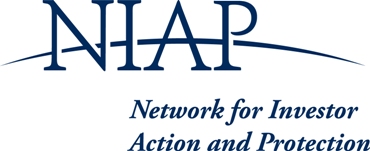ACKERMAN INTRODUCES LEGISLATION TO PROVIDE RELIEF FOR VICTIMS OF BERNARD MADOFF & ALL INVESTORS DEFRAUDED BY PONZI SCHEMES
Measure would prohibit clawing back money from victims, provide insurance for indirect investors and credit defrauded investors with the time value of money, among many provisions.
U.S. Rep. Gary Ackerman (D-NY), Senior Member of the House Financial Services Committee, today announced that he has introduced legislation that would provide assistance and expand protections to victims of Bernard Madoff and all investors defrauded by Ponzi schemes.
Entitled the Ponzi Scheme Investor Protection Act of 2011, the measure would improve protections by reforming the Securities Investor Protection Corporation (SIPC), which Congress created in 1970 to recover assets that investors lose through failed brokerage firms.
The legislation would restrict the ability of trustees appointed by SIPC – such as Irving Picard who is overseeing the Madoff liquidation – to “claw back” or take back funds from innocent victims of Ponzi schemes. Currently, a SIPC-appointed trustee is permitted to sue a Ponzi scheme victim in order to recover assets regardless of whether or not that victim had any involvement in or knowledge of the scam. As a result of this broadly-granted authority, many innocent victims of the fraud are facing hefty lawsuits. Under the legislation, the only investors who could face claw-back litigation would be those who the SIPC trustee legally establishes were either negligent registered investment professionals or investors who were complicit in the scheme.
The legislation would also direct the SIPC-appointed trustee to evaluate a defrauded Ponzi scheme investor’s “net equity” claim using a “time value of money” calculation, which would credit victims with the general rise in prices during the course of their investment. Net equity would be calculated by adding the rise in consumer prices as defined by the Consumer Price Index which is set by the Department of Labor. Net equity would now recognize when the cash was invested and what the general rise in prices was between the year of deposit and when the Ponzi scheme was uncovered. This process would result in a more accurate valuation of the Ponzi-scheme investors’ losses, and a more equitable basis for SIPC payments.
In addition, the bill would expand the number of Ponzi-scheme victims eligible for insurance by requiring SIPC to provide up to $100,000 worth of coverage to indirect investors – those whose investment (and subsequent loss) in a Ponzi scheme was made through a third party, such as feeder funds and/or other indirect sources. Presently, SIPC provides insurance of up to $500,000 per investment only to direct investors. The bill funds this increase in the SIPC insurance fund by raising SIPC assessments against broker-dealers, and therefore would not require any additional taxpayer funds. To protect the industry from being forced to pay both higher SIPC assessments and face costly litigation from indirect investors, the measure requires indirect investors who accept a SIPC insurance payment to waive their right to sue the investment vehicle through which they invested in the Ponzi scheme.
Further, the legislation would increase accountability and oversight of SIPC-appointed trustees in an effort to rein in the potential for trustee overreach, as has been alleged in the Madoff case. In the event that SIPC is engaged in a liquidation in which they do not reasonably believe that they will be able to recoup the advances that they are paying to investors, the legislation would subject the trustee to an annual audit performed by an independent public accountant. The trustee’s compensation, in particular the nature, value and extent of the services billed by the trustee, would also be subject to review by the court-appointed bankruptcy judge. Presently, SIPC’s recommendation for trustee compensation is essentially is essentially not subject to challenge.
Lastly, the Ponzi Scheme Investor Protection Act would provide for a more timely and equitable consideration of claims by SIPC after the discovery of a large Ponzi scheme. The bill would mandate SIPC, within 30 days of the discovery of a Ponzi scheme with customer investment in excess of $1 billion, to submit to the House Financial Services Committee, the Senate Banking Committee, and the Secretary of the Treasury its expected timeline for the consideration of claims. If SIPC fails to consider claims within this timeline, the Secretary of the Treasury would be empowered to require SIPC to make claim payments with interest. SIPC is currently not required to abide by any timeline.
Ackerman’s measure would apply retroactively to any Ponzi scheme discovered with customer investments of more than of $1 billion.
“If enacted, this legislation will go a long way towards finally providing the relief that the innocent victims of Bernard Madoff and other Ponzi scheme swindlers deserve,” said Ackerman. “More than two-and-a-half years since the Madoff fraud was uncovered, too many victims are still hanging in limbo. Prohibiting claw backs, extending insurance to indirect investors, and defining net equity in a fundamentally fairer manner will finally allow victims to receive some much-needed justice. Congress has a responsibility to come to the aid of those defrauded by these unconscionable scams, and that is what this legislation does.”
The bill has been referred to the House Financial Services Committee where it is now awaiting further action.
# # #
